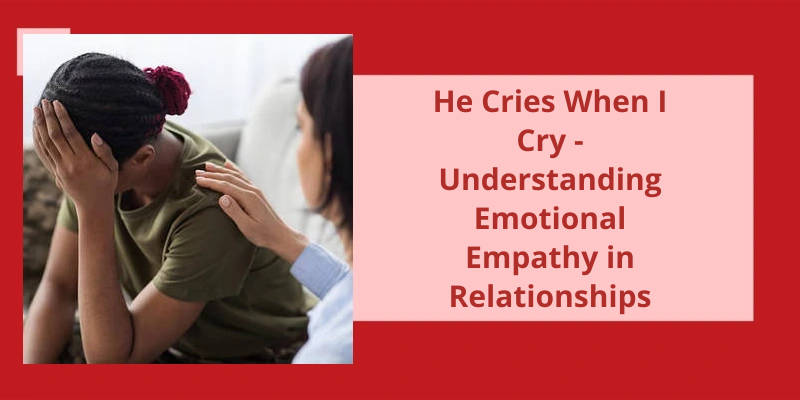Can BPD Make You Fall Out of Love? One of the defining characteristics of Borderline Personality Disorder (BPD) is a fear of abandonment. However, this fear of abandonment can also manifest in an unexpected way. This tumultuous pattern of constantly oscillating between demands for love or attention and sudden withdrawal or isolation can have a profound impact on their ability to maintain long-term, fulfilling relationships. It can also raise questions about whether individuals with BPD are capable of truly falling out of love or if their behavior is driven more by fear and self-preservation. Understanding the complex dynamics at play for someone with BPD is crucial in comprehending their seemingly contradictory reactions to love and relationships. The underlying fear of abandonment leads them to desperately seek affection and reassurance, as they believe that love and attention are essential for their very survival. This intensity and craving for love can be overwhelming for both the individual with BPD and their partner, leaving them feeling consumed and emotionally exhausted. However, when the fear of abandonment becomes too overwhelming, individuals with BPD may abruptly shift to a state of being overwhelmed by closeness. The intense intimacy they once craved now feels suffocating, triggering a fear of losing their identity or being engulfed by their partner. This sudden withdrawal and isolation aren’t a reflection of falling out of love but rather a defense mechanism to protect themselves from perceived harm. It’s important to note that these patterns of behavior aren’t intentional or driven by a desire to manipulate or hurt others. Individuals with BPD often feel trapped in an emotional rollercoaster, unable to control their intense emotions and fears. This inner turmoil can lead to instability in relationships, as partners struggle to understand and navigate this constant push-pull dynamic. Rather, these behaviors stem from a deep-rooted fear and a desperate attempt to protect themselves. By understanding the complex dynamics of BPD and providing support and compassion, it’s possible to foster healthier and more stable relationships for individuals with this condition.
Do Borderlines Fall Out of Love Quickly?
People with Borderline Personality Disorder (BPD) may be more prone to falling out of love quickly due to the complex nature of the condition. Individuals with BPD often struggle with intense and unstable emotions, which can result in shifting perceptions of love and attachment. The tendency to “split” the world into black and white, good and bad, can extend to their relationships, causing rapid changes in feelings of love and affection.
One of the core symptoms of BPD is a fear of abandonment, which can lead individuals to form intense and often idealized attachments to their partners. However, this can be accompanied by a deep-rooted fear of being hurt or rejected, causing a rapid shift from adoration to detachment. The fear of abandonment can trigger an intense emotional reaction, leading to a swift withdrawal of love and emotional distancing.
Some individuals may have highly fluctuating emotions, while others may struggle with maintaining long-term relationships or struggle to trust and fully engage in intimate connections.
Understanding and supporting individuals with BPD requires empathy, patience, and a recognition of the complexities of their emotional experiences.
The Role of Attachment Styles in Relationships for Individuals With BPD
The role of attachment styles in relationships for individuals with Borderline Personality Disorder (BPD) is important to consider when examining the dynamics of falling out of love. Attachment styles refer to patterns of relating and forming emotional bonds with others that develop early in life.
Individuals with BPD often struggle with unstable and intense relationships, which can be influenced by their attachment style. Those with an anxious attachment style may fear abandonment and become overly dependent on their partner, while those with an avoidant attachment style may avoid closeness and struggle with emotional intimacy.
These attachment styles can impact the experience of falling out of love. For someone with BPD, the fear of abandonment and intense emotions may contribute to feelings of insecurity and uncertainty in the relationship. This can lead to rapid shifts in feelings of love and emotional connection.
Additionally, individuals with BPD may have a heightened sensitivity to perceived rejection or criticism. This can make it challenging to navigate relationship challenges and maintain a sense of love and connection.
It’s important for individuals with BPD to seek therapy and support to address these attachment issues and develop healthier ways of relating in relationships. Through therapy, individuals can work on understanding and managing their emotions, improving communication skills, and developing more secure attachment styles.
Conclusion
The intense fear of abandonment coupled with a fear of intimacy can create a tumultuous cycle within relationships. This cycle manifests as a constant oscillation between craving love and attention while simultaneously withdrawing and isolating oneself. Such fluctuating behaviors can strain relationships and potentially lead to the dissolution of love.






